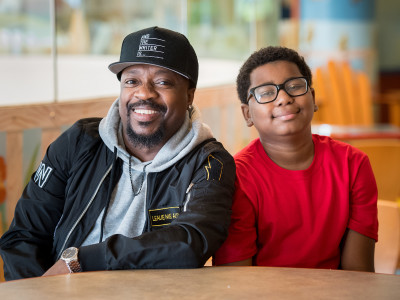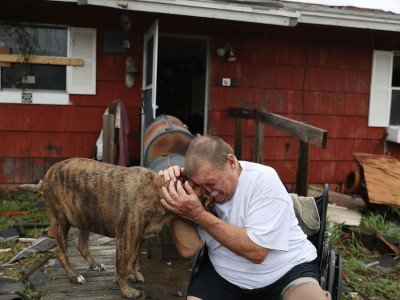St. Jude Children’s Research Hospital closes survival gap for virtually all African-American and white children with cancer in a study that suggests equal access to care translates into an equal chance of a cure
A new analysis from St. Jude Children’s Research Hospital adds to evidence that equal access to comprehensive treatment and supportive care typically translates into equally good outcomes for most young African-American and white cancer patients. Researchers found no significant difference in survival rates between African-American and white children treated at St. Jude for virtually all cancers during a 15-year period ending in 2007.
Racial disparities in cancer survival are widely recognized among African-American patients of any age. These patients are less likely than their white counterparts to become long-term cancer survivors. While this and previous studies have highlighted the success of St. Jude in closing the gap, investigators reported that the disparities persisted for many U.S. pediatric cancer patients. The work appears in the April 30 online edition of the Journal of Clinical Oncology.
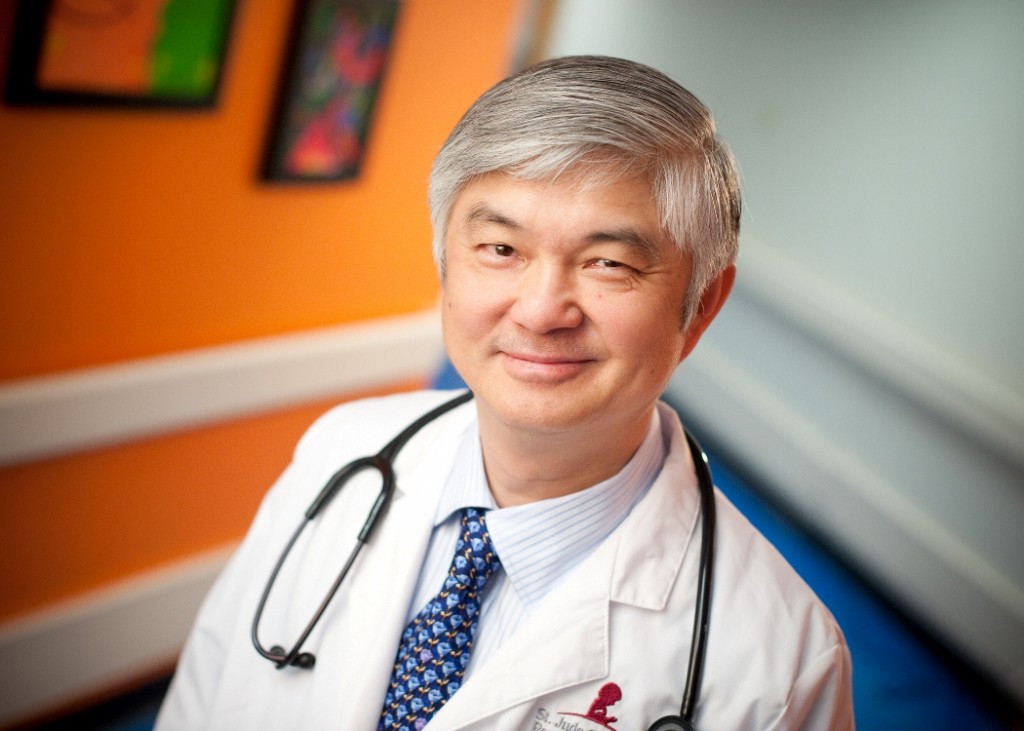 The study spans an era of significant advances in the treatment of several childhood cancers that by 2007 had helped to push the nation’s overall five-year pediatric cancer survival rate past 80 percent. But results reported to the National Cancer Institute Surveillance, Epidemiology and End Results (SEER) program from throughout the U.S. show that African-American patients did not share equally in those advances. SEER compiles data from 17 states and metropolitan cancer registries. Together those registries cover about 26 percent of the U.S. population.
The study spans an era of significant advances in the treatment of several childhood cancers that by 2007 had helped to push the nation’s overall five-year pediatric cancer survival rate past 80 percent. But results reported to the National Cancer Institute Surveillance, Epidemiology and End Results (SEER) program from throughout the U.S. show that African-American patients did not share equally in those advances. SEER compiles data from 17 states and metropolitan cancer registries. Together those registries cover about 26 percent of the U.S. population.
Ching-Hon Pui, M.D., chair of the St. Jude Department of Oncology and the study’s lead author, said the findings underscore the importance of giving patients equal access to comprehensive cancer treatment. While an individual’s cancer risk may vary based on race or ethnicity, Pui said this study demonstrates that comprehensive risk-directed therapy and supportive care help patients enjoy excellent outcomes equally. “This study shows that with outstanding medical care and psychosocial support African-American patients should not necessarily fare worse than white patients,” he said.
The study focused on survival rates for African-American and white children battling one of 19 cancers. Researchers analyzed the outcome for 4,128 St. Jude patients and for 23,885 pediatric patients in the SEER database. The SEER patients were treated at various U.S. medical centers.
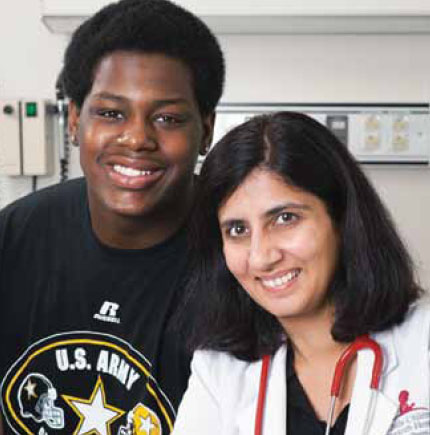 The cancers were all diagnosed between either 1992 and 2000 or 2001 and 2007. During that 15-year period, about 19 percent of St. Jude patients self-identified as African-American and about 75 percent as white. About 10 percent of the SEER patients in this study were African-American and almost 58 percent were white.
The cancers were all diagnosed between either 1992 and 2000 or 2001 and 2007. During that 15-year period, about 19 percent of St. Jude patients self-identified as African-American and about 75 percent as white. About 10 percent of the SEER patients in this study were African-American and almost 58 percent were white.
The analysis of SEER results found African-American patients generally had significantly worse outcomes than white patients with the same cancer. The racial survival gap narrowed during the treatment eras included in this study for patients with acute lymphoblastic leukemia (ALL) and Hodgkin lymphoma, but widened for those battling acute myeloid leukemia (AML) and neuroblastoma, a tumor of the nervous system.
During the same period at St. Jude, African-American and white patients enjoyed similar survival gains, particularly those treated for ALL, AML and the eye tumor retinoblastoma. Overall, African-American and white St. Jude patients had similar odds of becoming long-term survivors. The possible exception was children with a few rare cancers and advanced disease when treatment began.
Patient Shon (Pictured Above) thought when he was diagnosed with acute lymphoblastic leukemia (ALL), the most common form of childhood cancer, his dreams for playing college football were over. Thanks to St. Jude, he is now in Spring training with Auburn University and his hopes for college and the NFL have been restored.
“These findings flow directly from Danny Thomas’ strong view that to conquer childhood cancer, treatment must be equally available across all racial and ethnic groups, which has been the case at St. Jude since he opened the doors in 1962,” said Dr. William E. Evans, St. Jude CEO and a study co-author.
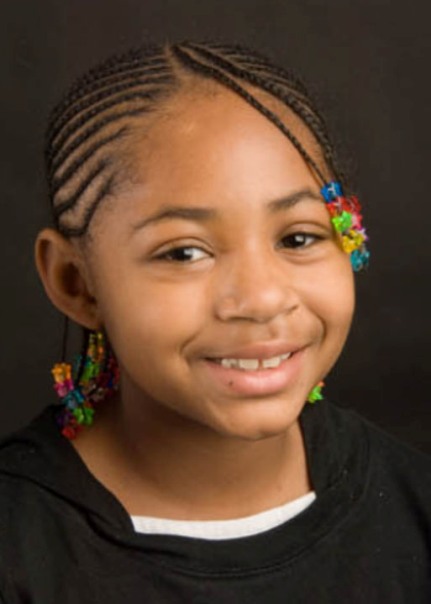 Thirteen-year-old patient Jazmine (Pictured Left) was diagnosed at age seven and had a form of acute lymphoblastic leukemia (ALL) that is resistant to treatment and caused her to suffer a relapse. Because of St. Jude’s pioneering research, a bone marrow transplant now offered the best chance for a cure and Jazmine is now back home in Illinois and cancer free.
Thirteen-year-old patient Jazmine (Pictured Left) was diagnosed at age seven and had a form of acute lymphoblastic leukemia (ALL) that is resistant to treatment and caused her to suffer a relapse. Because of St. Jude’s pioneering research, a bone marrow transplant now offered the best chance for a cure and Jazmine is now back home in Illinois and cancer free.
The SEER and St. Jude patients differed in several important ways; including the strength of diagnostic testing for certain brain tumors. St. Jude patients were also more likely than the ones from SEER to be enrolled in clinical trials. Pui noted that high-risk or advanced cancers were more common among St. Jude patients than among other children with cancer. St. Jude is a referral center with clinical trials that focus on difficult or advanced cancer.
St. Jude treats all qualified patients regardless of a family’s ability to pay. The hospital does not routinely collect socioeconomic information about patients but a check of the insurance coverage of patients in this study found African- American children were more likely than white children to be uninsured or covered through government health plans. Researchers noted that insurance coverage can be a marker of socioeconomic status and also influence a patient’s access to bone marrow transplants and other expensive therapies. The study was funded in part by the National Cancer Institute and ALSAC.
To learn more, visit www.stjude.org. Follow St.Jude on Twitter @StJudeResearch.



